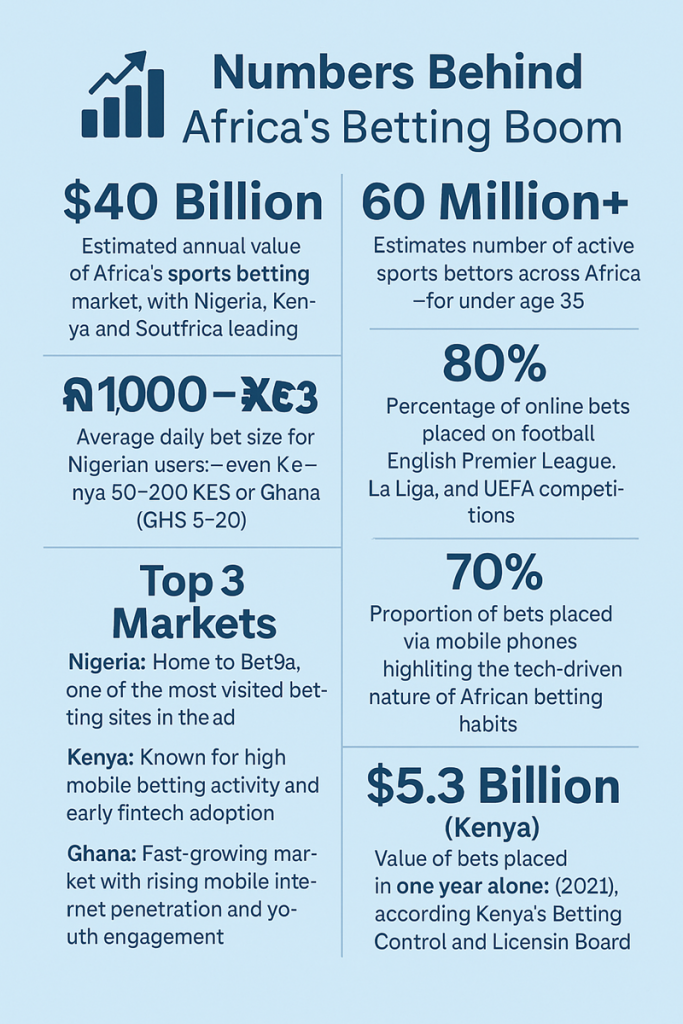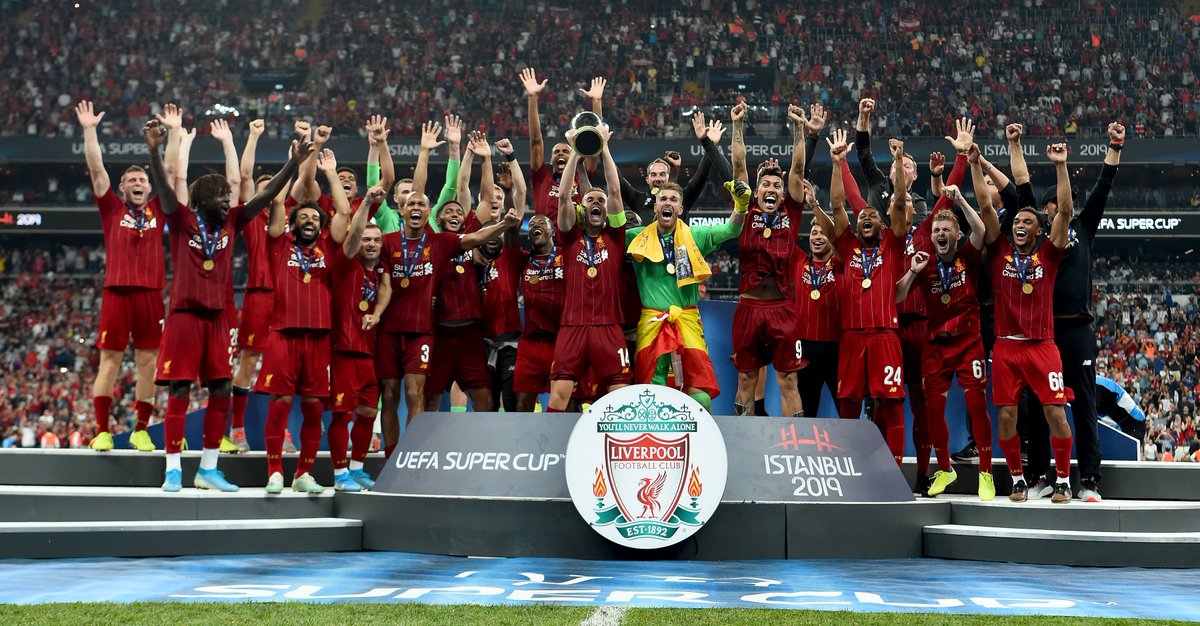Follow @Emiearth on X for more expert analysis.
On any given Saturday afternoon in Lagos, Nairobi, or Accra, millions of people are doing more than just watching football – they’re betting on it. And not just for fun. For many, a N500 or 100 KES ticket isn’t just about passion; it’s a strategy, a hope, a hustle.
Across Africa, football fans aren’t just spectators anymore. They are punters – and in massive numbers. And while most headlines focus on addiction or regulation, there’s another story quietly unfolding: African bettors influencing how international bookmakers set odds, offer promos, and track betting trends. And this global ripple effect is just beginning.
“The rise of betting in Africa is largely driven by increased access to the internet and mobile technology, making betting apps more seamless and accessible,” says a director at kickoff102bet.com
With smartphones in nearly every pocket and data bundles getting cheaper, betting has gone mobile — and viral.

Tech, Football & the Betting Boom
Africa’s love for football runs deep. Add in smartphones and fintech, and the result is a massive surge in sports betting – especially among young people. In Nigeria, where youth unemployment is high and mobile internet is widespread, betting apps like Bet9ja dominate app stores.
“There’s a growing enthusiasm for sports among African youths, and that naturally feeds into the popularity of sports betting,” says the director.
In Kenya, mobile money platforms like M-Pesa made betting not just convenient but instant. In Ghana, slick advertising and EPL obsession have made weekend betting slips as common as weekend errands.
But the why behind the boom goes deeper than just tech.
Betting as a Lifestyle
Betting has become part of youth culture in many African cities. It’s social. It’s competitive. And for some, it feels like a side hustle.
“Unemployment plays a huge role, many young people see betting as a quick way to make money,” explains the kickoff102bet.com director.
And when everyone’s doing it, the peer pressure is real.
“Peer influence can’t be ignored. When everyone around you is betting, it’s easy to get drawn in.”
Bettors aren’t just backing their teams – they’re calculating stats, joining Telegram tip groups, and reacting live to games in real-time. The average African punter is sharper than ever, blending passion with strategy.
?? ????? ?????? ?? ???? ???? ????? ?? ??? ???? ??
— Bet9ja: The home of #betBOOM! ? (@Bet9jaOfficial) July 9, 2025
Are you ready to go 1Up?! ?
Marketing, Influencers & The Thrill
Everywhere you look – Instagram, TikTok, billboards – betting brands are front and center, often endorsed by local celebs and influencers. It’s not subtle. It’s by design.
“Betting companies are strategic – they offer promotional bonuses and policies specifically targeted at young users,” says the director.
“The heavy advertisement of sports betting, especially using popular influencers and celebrities, has made it more appealing to the youth.”
The thrill of placing a last-minute goal scorer bet? That’s part of the hook.
“For many youths, betting is also about the thrill and the adventure – it’s part of their youthful exuberance.”
A Hidden Global Influence
What most people don’t realise is how this massive local activity is shaping the global betting scene.
Millions of bets placed from Lagos and Nairobi affect odds movement – especially on European club matches. International sportsbooks track African markets in real time and adjust odds when volume spikes. Some even design promos based on Nigerian betting habits or Kenyan payout trends.
“We’re seeing cultural and traditional shifts where once-taboo practices like gambling are now more accepted in many African communities,” the director notes.
Balancing Growth with Caution
Of course, it’s not all celebration. There’s a growing concern about addiction and long-term effects on youth, especially as betting becomes more embedded in daily life. Regulation in many countries is still catching up. Stories of addiction and debt exist alongside stories of wins. And because betting is often seen as a hustle – a quick way to flip a small amount into a big payout, it sits at a complicated intersection of hope and risk.
“Gaming addiction is becoming more common, especially among young people who are constantly online,” the director warns.
Still, there’s another side to this coin. The industry is creating jobs – from odds analysts and app developers to customer service roles and marketing teams.
“The betting industry has created some employment opportunities, which adds to its appeal.”
Are you ready for the Bet9ja Football Carnival?! ????? pic.twitter.com/PJDyxElUZf
— Bet9ja: The home of #betBOOM! ? (@Bet9jaOfficial) July 9, 2025
Final Whistle
Africa’s football punters aren’t just chasing luck; they’re shaping an industry. From how odds are set in Europe to how apps are designed globally, the everyday bettor in Accra or Abuja is now part of the algorithm.
So the next time odds shift during Saturday’s simultaneous kick-off, don’t be surprised if part of that move started with a bet you didn’t see… from someone placing a 3-team combo on their cracked smartphone while riding a danfo through Lagos traffic.
The data cited draws from a wide range of reputable sources including PwC South Africa, H2 Gambling Capital, GeoPoll, BBC Africa Eye, ASBA, Statista, KPMG, Bet9ja, Betika, Deloitte, GSMA, Quartz Africa, Afrobarometer, and the World Bank.




1 Comment
by lol
cool!